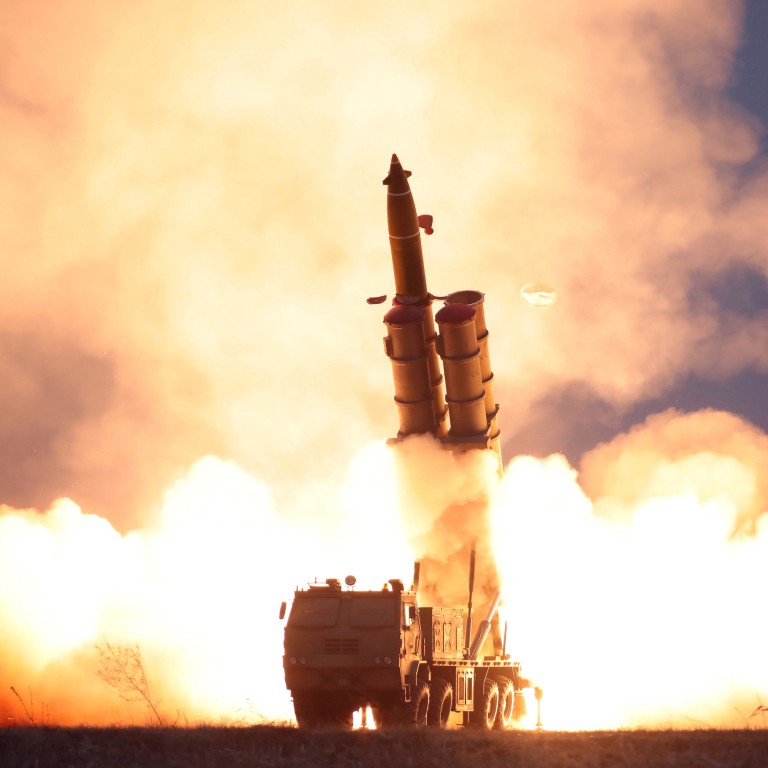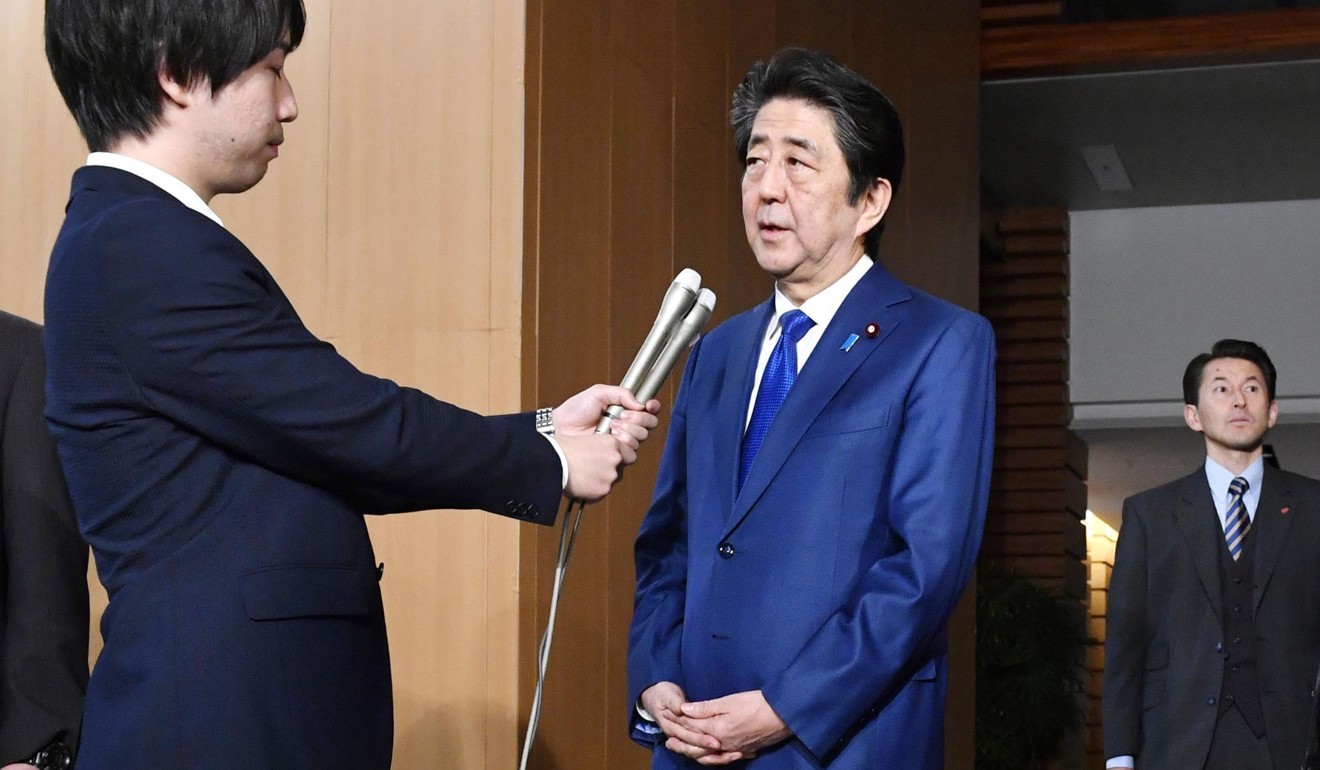
As its deadline for ‘bold decision’ from US looms, North Korea is ramping up the rhetoric again
- Any end-of-year deal between Washington and Pyongyang is unlikely to be substantial. And if there isn’t one? Expect more of the same
Yet, put to one side the typically bombastic rhetoric and denigration of North Korean political statements, and an interesting picture emerges. This instance does not mark the first time that Pyongyang has couched its missile launches in alternative language, given how the UN Security Council explicitly condemns any missile launches as a firm violation of resolutions.
North Korea fires projectiles toward Japan's waters as deadline looms
Who can forget when North Korea stated in no unclear terms that it had launched a “satellite” – using the same technology as for ballistic missiles – in December 2012? While the launch directly contravened UN Security Council Resolution 1874 – demanding that North Korea refrain from conducting “any launch using ballistic missile technology” – in Pyongyang’s eyes, satellite launches are not within the remit of the UN Security Council resolutions.
In Pyongyang’s eyes, the international community should get its nose out of its domestic affairs.

Fast-forward to 2019, and much of the same rhetorical debate remains. Talks between Washington and Pyongyang, which restarted in October, have borne little fruit. North Korea is not afraid to follow through on its commitments.
Given North Korea’s history of refusing to engage with the United States whenever it chooses – we only have to go back to the six-party talks to see evidence of this – any end-of-year deal, if reached, is likely to be premature.
North Korea warns US of ‘Christmas gift’ after weapons talks stall
Just as Pyongyang agreed to freeze its plutonium operations at Yongbyon in 1994 only to engage in covert highly enriched uranium development, Yongbyon may be put on the table again. This time, in 2019, North Korea’s nuclear programme is far more sophisticated than in 1994 – it is, in Pyongyang’s words, a “full-fledged nuclear state”.
If the US does decide to ease some sanctions, North Korea may put parts of its Yongbyon nuclear complex up for negotiating. Crucially, these parts will be useless and worthless from the outset to Pyongyang, which has moved beyond Yongbyon regarding the continuation of its nuclear operations. Indeed, such a scenario is akin to receiving a lump of coal in nicely wrapped paper for Christmas: a gift it may be, but of little value to the giver or receiver.
Negotiations only work when the exchange between both parties is substantial and meaningful. A scenario whereby Washington gives a lot, but Pyongyang gives a paltry amount, only furthers one of Kim’s central aims – continued nuclear development such that the international community will have little choice but to accept, in all but name, North Korea as a “nuclear state”.

Speaking at the Nato summit in London last week, Trump again referred to the North Korean leader as “Rocket Man”, saying he “definitely likes sending rockets up”, but “in the meantime, we still have peace”. Just what Kim wanted to hear.
North Korea conducts ‘very important test’ in message to Trump
Yet, China’s contentment with the status quo, even despite its distaste for Pyongyang – the communist neighbours not so close “as lips and teeth”, as Mao Zedong once alluded – remains.
What kind of Christmas exchange will take place between Washington and Pyongyang? If there is any deal, we should not expect it to be a substantial one. And if there is not? Well, the new year will see a continuation of the same. Trump will claim his friendship with Kim will be enough to keep relations from escalating back to the days of “fire and fury”, and as for Kim, he will remain satisfied, since his nuclear ambitions will have been far from halted.
Edward Howell is an ESRC scholar in international relations at the University of Oxford, specialising in East Asia and the Korean peninsula

